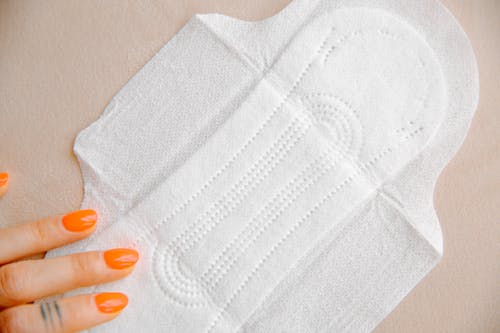
Menstruation is a sign that a woman's body has developed and can become pregnant. After a woman enters the menstrual stage, each month the ovaries will release an egg which is a fertilized embryo. This process is called ovulation. If sperm enter the uterus and fertilize an egg, pregnancy can occur. At the same time, hormonal changes in the body also prepare the uterus for pregnancy. If the egg is not fertilized, the egg and uterine wall will rot and leave the body. This condition is then called menstruation.
Today, with the ease of information and the spread of the Internet at your fingertips, you can easily find a lot of information about menstruation. However, among all the helpful suggestions, there is also some misleading news.

Drinking Ice Cause Blood Clots During Menstruation?
Menstruation is the process of decomposing the uterine wall which is rich in blood vessels. There are many factors that make the menstrual process smoother or, on the other hand, disrupted. One of the assumptions circulating in society is the notion that drinking ice can cause blood to clot during menstruation. Is this guesswork? But it turns out that the idea that drinking ice during your period can interfere with your period by causing blood to clot is a myth. A woman's menstrual cycle is regulated and influenced by the balance of the hormones estrogen and progesterone.
The balance of these two hormones is greatly influenced by physical and psychological health. Cold drinks do not affect hormonal balance in women and do not affect the menstrual cycle, which facilitates and inhibits menstruation.
Some people also say that cold water can make cramps worse. Although so far, there is no scientific basis for this problem. So, it looks like a glass of cold juice or a glass of refreshing water is quite safe for you, even if it's in your menstrual period. The human body has a mechanism to regulate the body's internal temperature. Drinking ice water does not easily change body temperature.
When a person drinks ice water, the temperature of the drink will change when the drink enters the stomach. The stomach organs will regulate the temperature of food and drink that enters the body. This causes you to drink cold water which cannot affect blood clotting because the temperature has adjusted as it enters the stomach.
Drinks to Avoid During Menstruation
Although cold drinks don't affect your period, there are a number of drinks that you should avoid during your menstrual period. For example, excessive alcohol consumption can affect your menstrual schedule.
For those of you who also suffer from disorders such as stomach acid, avoid drinks that can make stomach acid complaints worse. Some drinks that can exacerbate stomach acid complaints are chocolate drinks. Black coffee, tea and soft drinks. Of course, you don't want stomach cramps during your period, but it can also worsen complaints of flatulence and nausea due to recurrence of your acid reflux.
Now, you don't have to worry anymore if you want to drink ice during your period. Cold drinks do not affect the menstrual cycle, let alone cause blood clots. However, most importantly, don't forget to pay attention to the type of drink you drink, so that it doesn't have a negative effect on your health.



No comments: